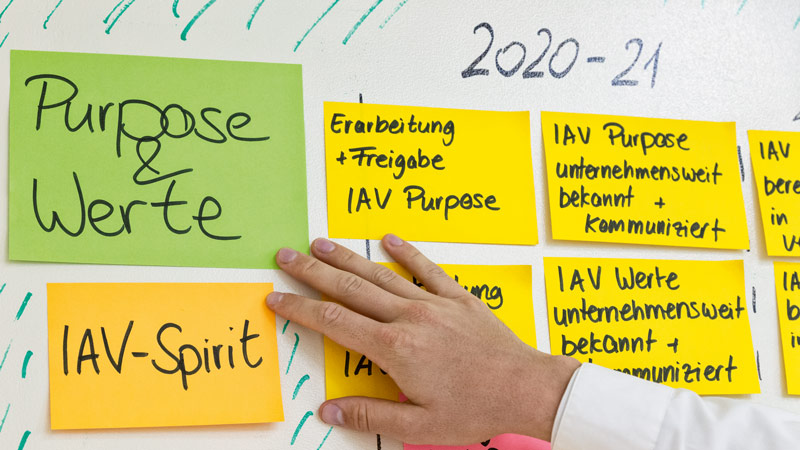Energy & Water Management
Energy and water management will not escape the digital revolution either. From its expertise in automotive engineering, IAV is already in full command of many aspects that will play a key part there in future, for example simulation, model-based methods, sensor technology and the latest approaches in control engineering.

Increasingly, the energy transition will mean that energy suppliers and grid operators will need to cope with decentralized generators producing fluctuating levels of energy. It is for this reason that grids are being expanded throughout Germany and provided with their own dedicated smart technology. For tomorrow’s smart grids, it will be essential to optimize grid topology as well as to provide intelligent control engineering and model-based methods (e.g. for virtual sensors) – aspects IAV is at home in, partly from its automotive development activities, and partly from adding them as new elements to its methodology toolkit over recent years.
This makes our interdisciplinary teams of engineers, physicists and data scientists ideally placed to provide support and assistance for customers from the energy sector. Not only can they expect expert advice from IAV but also tools for grid planning, optimization computation as an engineering service or turnkey product solutions. This includes among others intelligent real-time operation control of wind turbine generators as the ones IAV has developed in the “eco4wind” research project which uses the latest research results from control engineering and automation technology. The results promise to produce a higher yield from wind turbines, greater reliability in the supply of energy and the basis for opening up new installation sites.
Behind eco4wind is a modular system that offers a completely new and intelligent way of planning and managing operating dynamics. This makes it possible to revolutionize conventional rotor speed, power, structural tower damping and drivetrain damping control. As a result, higher energy yield and lower material costs lead to lower electricity generation costs. It also improves the reliability of wind power supply. The demand for balancing energy falls or, as an added bonus, wind turbines will even be capable of supplying their own balancing energy. On top of this, the results of eco4wind will also make it possible to open up new sites for wind turbines in the future.

IAV’s Quarter Energy Management System (QEMS) aims to provide an optimized and climate-friendly supply of energy for residential quarters, i.e. housing blocks or residential districts. In the design phase, customers from the housing or power sector can use this software tool for generating detailed simulations as a way of identifying those components that are useful in the planned energy management system, how to dimension them and which operating strategy will ultimately deliver the best results. Intelligent control can also reduce the burden on the public power grid, making systems eligible for subsidies by being beneficial to the grid.
IAV can also realize solutions ranging from automated control systems for all energy flows right through to smart, end-to-end energy management. When we additionally take on the “smart energy management” of a residential quarter, we use information such as current weather forecasts and residents’ diaries for making intelligent predictions of energy production and consumption as a basis for maximizing the efficiency of the entire system.
Besides the power industry, the water management sector is also going through the digital transformation process and is on its way to “Water Management 4.0”, or smart water management, which places a greater emphasis on automation and artificial intelligence.
Climate change is confronting companies with more and more severe, localized precipitation events that cannot be predicted using conventional methods. In the “MobileView” project, we have forged a link between water management and the automotive sector. Interconnected rain sensors in vehicles serve as traveling measurement stations delivering data which is evaluated in the cloud. They help to identify heavy rain in good time, giving waterworks and flood control services sufficient time to implement countermeasures.
For the Munich RE Group, we have developed an acoustic sensor that detects precipitation events and is used for assessing insurance claims. But there are many other interesting applications that will be able to benefit from our engineering expertise. Digital sensor technology can be used, for example, to monitor water levels, flow rates and water quality. Cameras can serve to analyze the effectiveness of water purification in sewage treatment plants. And augmented reality (AR) lends itself to presenting new products and solutions to interested parties from water management with the aid of an AR app.
Given our knowledge of technologies and methods from the automotive sector, we can provide clients from the water management sector with comprehensive support in addressing the digital transformation process by consulting, providing solutions for data fusion, setting up databases and preparing their data for later analysis.
